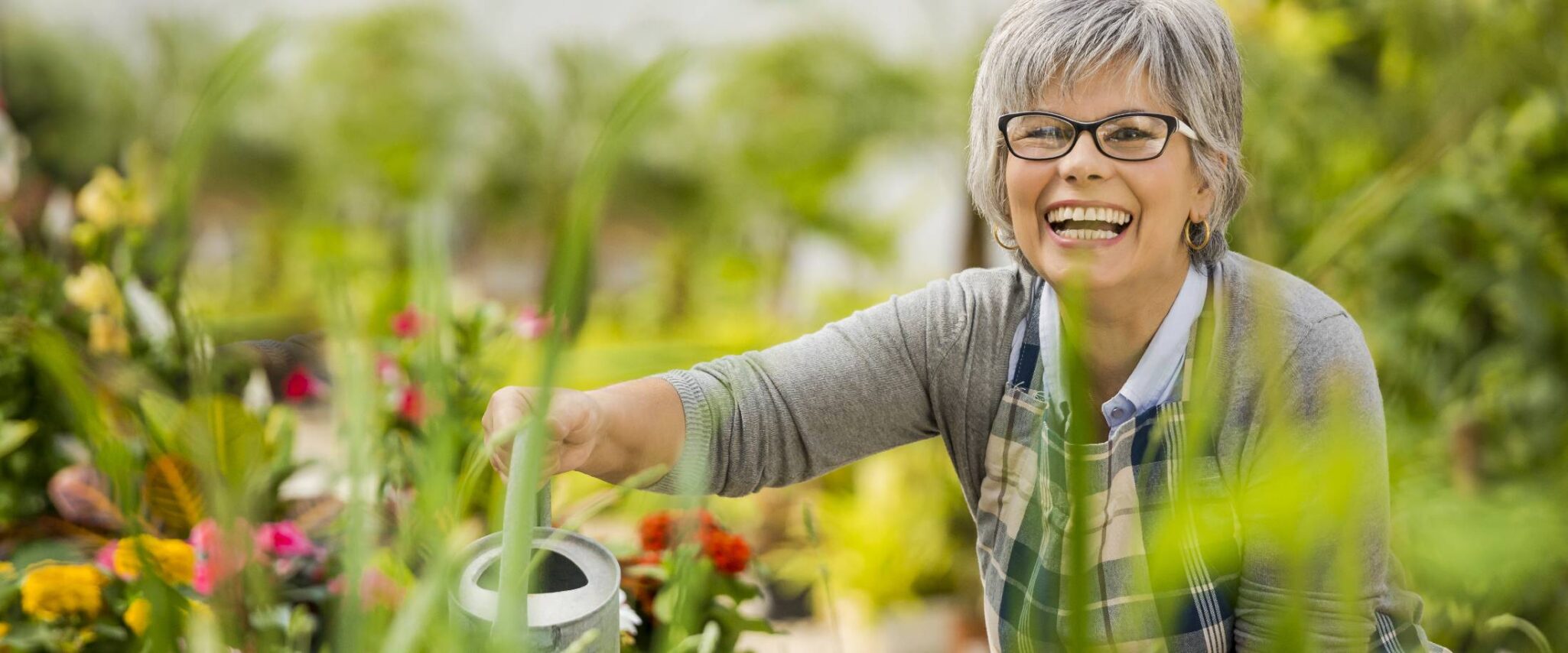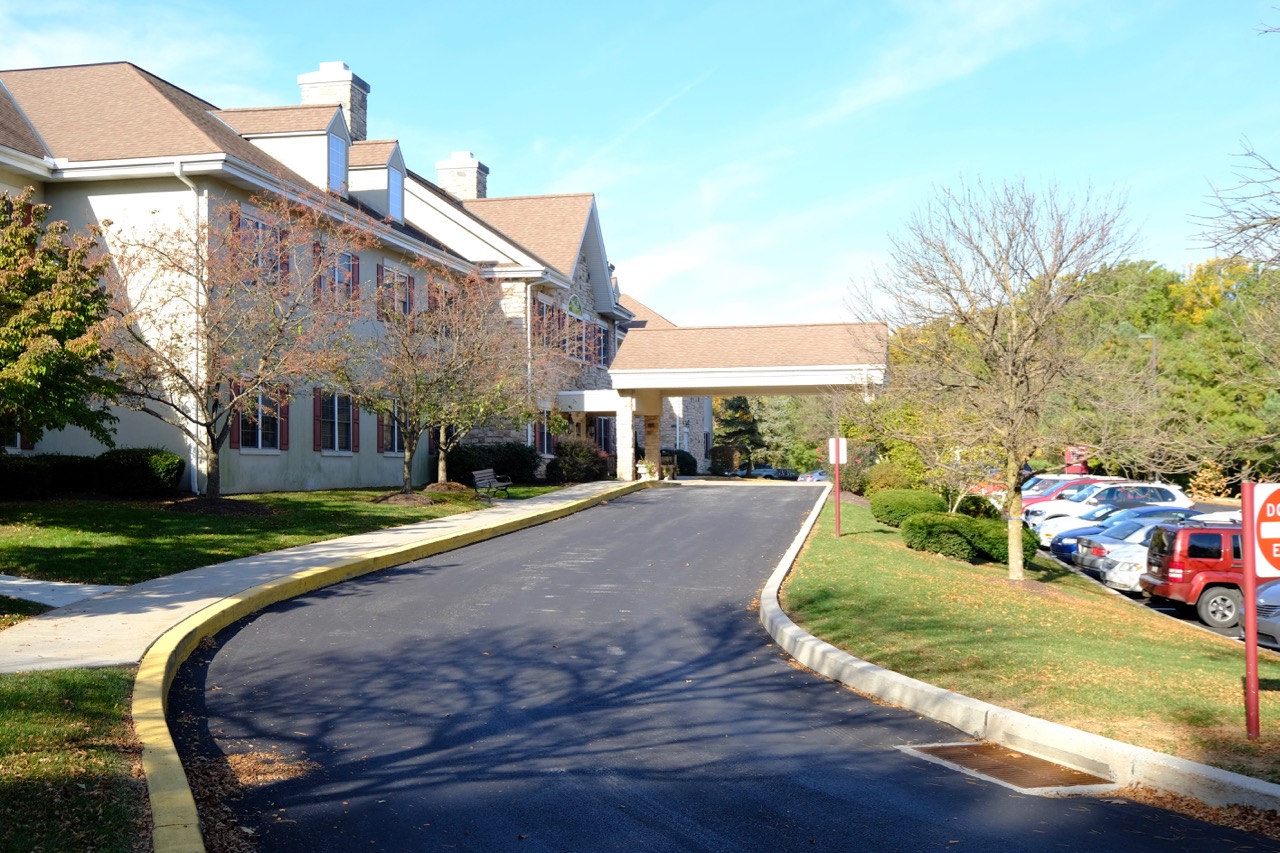Ten Gardening Tips for Seniors

If you get a kick out of gardening, there’s no reason to give it up as you age. The connection with nature is good for your health and your mental well-being. Plus, it’s fun to watch plants grow and develop, or reap the reward of harvesting your own produce. Older gardeners who are challenged by the lifting, bending, digging, weeding, and pruning that goes along with growing things need only modify their gardening habits to continue this wonderfully rewarding hobby. Here are ten gardening tips to make gardening for seniors more accessible.
You’ll Dig These 10 Gardening Tips
Tip #1: Ease into it.
Before you head outside, do a few mild exercises to get your body ready. Warm up with gentle stretches, focusing on joints such as wrists, knees and shoulders. When you start gardening, plan lighter, easier tasks first to give muscles time to become pliable.
Tip #2: Protect yourself.
Work in your garden during cooler times of the day, and drink plenty of water to hydrate. Consider wearing a hat or a lightweight, long-sleeved top to protect yourself from the sun, or from plants that might cause a scratch or rash that will take a long time to heal.
Tip #3: Pay attention to your body.
Be conscious of how you move, bend or carry items. Reduce pressure on your fingers by using your palms to pick up smaller items. Protect your back by using your legs when lifting something, or opt to roll it if it’s very heavy. Avoid twisting or leaning for something; turn and face the object instead. And don’t stay in the same position or repeat a single activity for too long. Switch between muscle groups or take a break every now and then.
Tip #4: Suit yourself.
Move planters closer to the door so you don’t have to make as many trips back and forth. Use brightly colored tools that are easy to identify, and keep them in one place with a gardening tote bag. Add lights to paths and walkways so you can see what you’re doing and avoid tripping or falling.
Tip #5: Go native.
Native plants establish themselves quickly, are hardier and require less upkeep. They also aren’t as thirsty, so you won’t need to haul a heavy hose around as often. Make it easier on yourself by choosing plants that thrive in their environment and more or less take care of themselves.
Tip #6: Invest in ergonomic tools.
Test out adaptive tools that make gardening for seniors easier. They’re lightweight and designed to reduce pressure on your hands and wrists. Depending on their function, gardening tools for seniors may feature longer handles, more cushioning, or levers that make tasks like pruning a “snap.”
Tip #7: Stay sharp.
Keep your sharp tools sharp. Sharper blades cut much more easily, with less resistance, which takes the work out of your hands and puts it on the tool. Your plant will thank you, too, for the clean chop.
Tip #8: Strike a balance.
Balancing work and rest is another key to gardening for seniors. Always consult your doctor about your physical abilities and limitations if you’re unsure about a physical activity or exercise — better to be safe than sorry.
Tip #9: Lift it up.
Raised garden beds and vertical structures such as trellises bring the garden to you. Try a container garden at a height that doesn’t require you to bend or kneel. This could be a great activity to work on with family, or if you’re handy, you could create a structure in our woodworking shop.
Tip #10: Think small.
Gardening for seniors is possible anywhere. If you love the idea of moving to a smaller home or senior apartment for the no-maintenance lifestyle, you can still enjoy a garden on your porch, patio or balcony. Try growing a kitchen garden with herbs or attract butterflies with flowers. With the right choices, you can have seasonal color all year round.
Keep growing at Freedom Village of Brandywine.
Explore our independent lifestyle that focuses on active outdoor living. Our terrace homes offer spacious patios for container gardening, and our community garden is a wonderful place to meet gardening buddies and grow plants of your own. Start imagining your green space here. Give us a call to discover how you can set down roots in our beautiful Chester County community.




